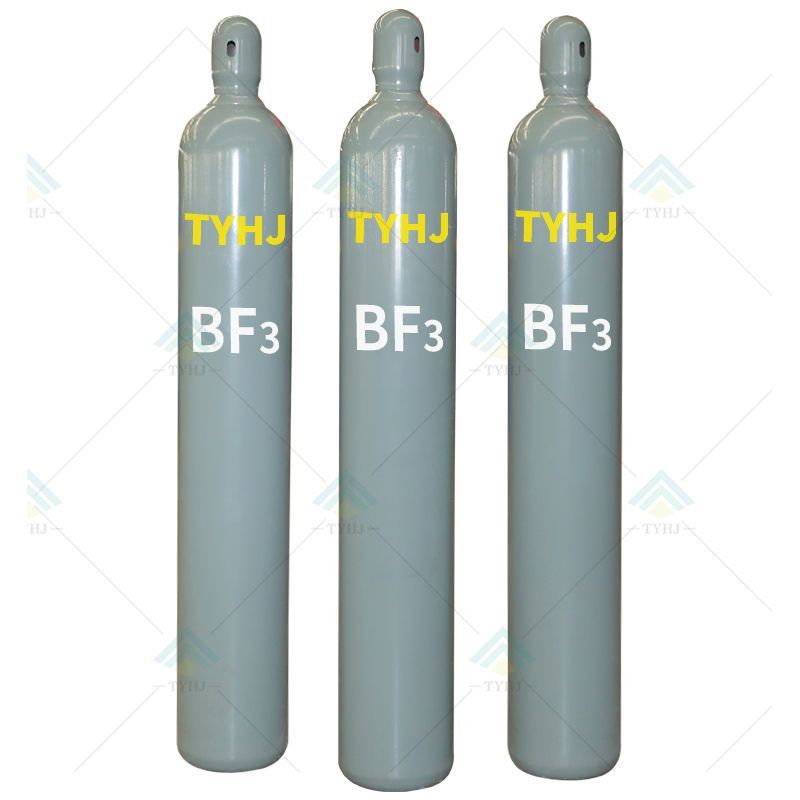Feb. 22, 2024
Chemicals
Boron Trifluoride (BF3) is a versatile and indispensable specialty gas that finds applications across various industries, owing to its unique properties and wide array of uses. In this comprehensive guide, we delve into the intricacies of Boron Trifluoride, exploring its uses, benefits, and significance in different sectors.
Boron Trifluoride is a colorless, nonflammable gas with a pungent odor. Chemically, it consists of one boron atom and three fluorine atoms, forming a trigonal planar molecule. It exhibits high reactivity due to its incomplete octet, making it an excellent Lewis acid. This characteristic makes Boron Trifluoride highly valuable in numerous chemical processes.

Boron Trichloride serves as a catalyst in various organic synthesis reactions, including alkylation, polymerization, and isomerization. Its Lewis acidity facilitates the activation of substrates and accelerates the desired chemical transformations. Industries such as pharmaceuticals, petrochemicals, and fine chemicals rely on Boron Trifluoride for efficient and cost-effective synthesis routes.
In the petrochemical sector, Boron Trifluoride plays a crucial role in the production of high-quality lubricants and additives. It aids in the alkylation of aromatic compounds, leading to the formation of alkylaromatics with improved lubricating properties. Additionally, Boron Trifluoride is utilized in the purification of petroleum fractions, enhancing the performance and stability of end products.
The semiconductor industry extensively utilizes Boron Trifluoride in the fabrication of integrated circuits and microchips. As a dopant gas, it contributes to the precise doping of silicon wafers, imparting desired electrical properties to semiconductor devices. The exceptional purity and reactivity of Boron Trifluoride ensure the production of high-performance electronic components with enhanced efficiency and reliability.
Boron Trifluoride finds applications in pharmaceutical synthesis, particularly in the preparation of complex organic molecules and intermediates. Its ability to facilitate key chemical reactions, such as esterification and cyclization, enables the synthesis of pharmaceutical compounds with improved efficacy and selectivity. Moreover, Boron Trifluoride-based reagents are employed in agrochemical formulations, contributing to the development of novel crop protection products and pesticides.
While Boron Trifluoride offers myriad benefits in industrial processes, it is essential to address its potential environmental and safety concerns. As a highly reactive Specialty Gas, proper handling and storage practices are imperative to prevent accidents and minimize environmental impact. Additionally, comprehensive risk assessments and safety training protocols should be implemented to ensure the safe utilization of Boron Trifluoride in industrial settings.
In conclusion, Boron Trifluoride stands as a vital component in numerous industrial applications, ranging from chemical synthesis to electronics manufacturing. Its unique properties and versatile nature make it an indispensable tool for enhancing process efficiency and product performance across various sectors. By understanding the diverse applications and benefits of Boron Trifluoride, industries can harness its potential to drive innovation and progress in their respective fields.
If you are interested in sending in a Guest Blogger Submission,welcome to write for us!
All Comments ( 0 )